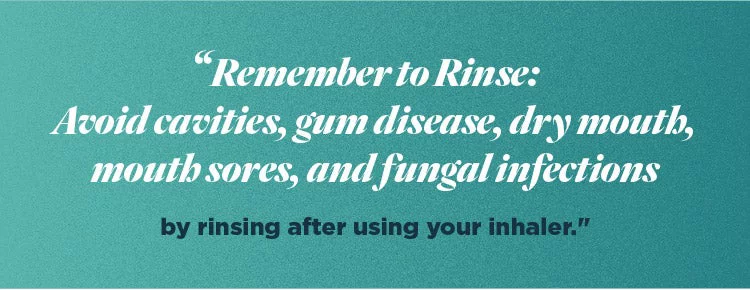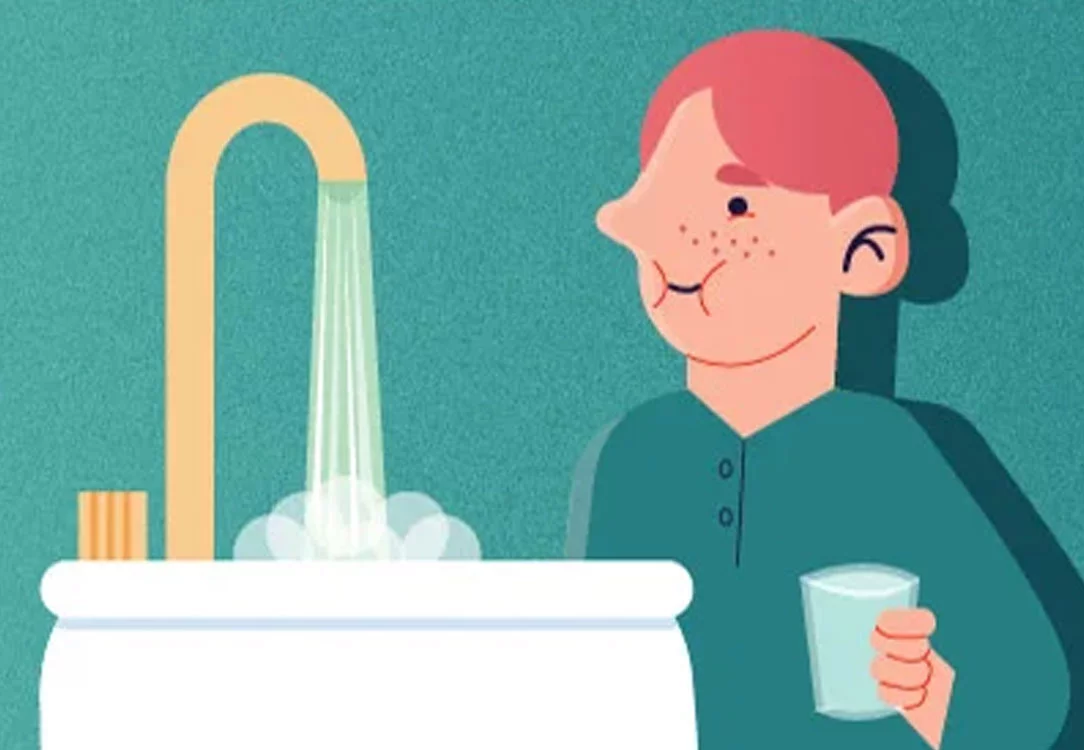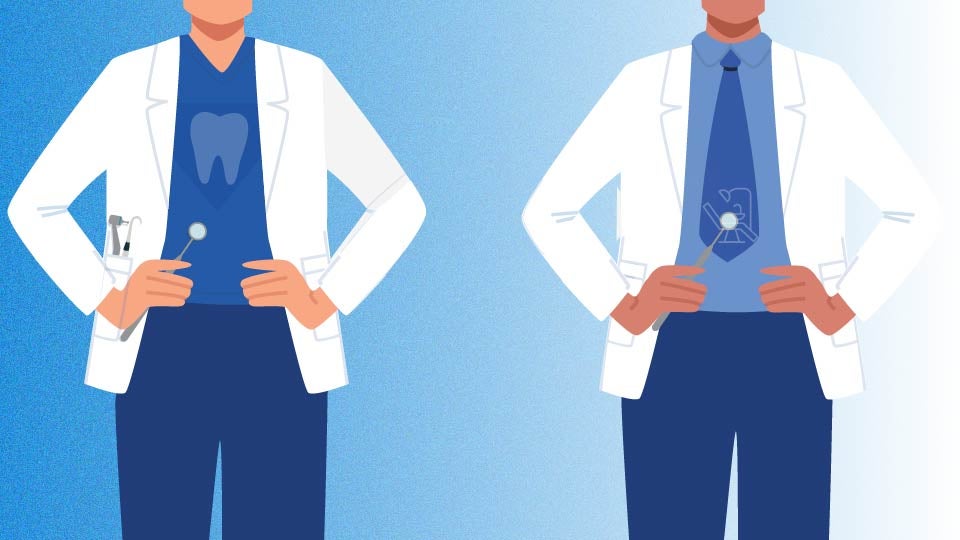Blog Summary: If you use an asthma inhaler, you might be protecting your lungs but putting your teeth at risk. This article explains how inhalers can lead to cavities, dry mouth, and enamel erosion—and more importantly, what you can do to prevent them. Learn simple steps to keep your smile healthy while managing your asthma.
Does Using an Inhaler Cause Cavities?
Yes, using an inhaler can increase the risk of cavities. When you use your breathing treatment, or inhaler, by putting it to your lips and breathing in, the medication can quickly squelch an asthma attack. Some people use their inhalers only when they have an infrequent attack, while others need to take a form of asthma medication every day to relax the muscles around the airways in their lungs. But asthma medication can leave a residue on your teeth that can wear down the hard outer layer of your tooth called the enamel. Asthma medicines can contain different ingredients that may have varying degrees of how they effect your oral health. Some asthma medications can even have sugar in them to improve the taste.
Can Asthma Medications Cause Tooth Decay?
In a 2007 study, asthma and tooth decay were the two top reasons for children missing school. The study also showed that the use of the medication salbutamol, also known as albuterol, specifically when used in an inhaler as opposed to in tablet form, increased the tooth decay rate in school children. The effects of albuterol on teeth can not only cause cavities but also lead to periodontal disease.
What Dental Problems Do Inhalers Cause?
- Exercise
- Laughing gas
- Allergies
- Smoking
Corticosteroids are steroids used for sudden attacks and are usually used for a shorter period of time.
In addition to tooth decay, inhalers can also cause negative health effects like gum disease, dry mouth, and even fungal infections. Inhalers are an excellent way to manage asthmatic symptoms and can even be a life-saving medication when used during an asthma attack. But as with every kind of medication, negative side effects can occur. Being aware of what negative oral health complications can happen will help you know what to look for and, ultimately, how to protect your mouth from these negative inhaler side effects.
Oral Thrush from Inhaler
Oral thrush is a fungal infection that creates white or yellow bumps or patches on the inside of your cheeks or even on your tongue. It can be uncomfortable at times though most cases are mild and easily treated with antifungal medicine. While thrush often occurs when a person has a weakened immune system, oral medications used like corticosteroids that are prescribed to asthma patients can also lower the immune system in your mouth and throat when ingested through an inhaler.
Dry Mouth
Mouth Sores
A dry mouth can lead to developing mouth sores or canker sores if left untreated. The steroid medications in some patients’ inhalers can lead to the development of dry mouth, and eventually, painful mouth sores will follow. But, as stated above, inhalers can also cause oral thrush, which can also result in open sores in your mouth. The white, bumpy patches can burst open, causing painful, irritating sores to develop.

Why Rinse Mouth After Using an Inhaler?
Brushing twice a day and flossing daily can keep your mouth in the best condition possible. Because most negative side effects result from the medication coating your mouth and teeth, rinsing your mouth out with water after using your inhaler is an excellent way to prevent oral health decline. Specifically, rinsing your mouth after using a steroid inhaler is important because of the medicated residue it leaves on your teeth, inner cheeks, and tongue. Brushing your teeth after using an inhaler is an even better way to clean off the medication's film left on your teeth.
Find A Dentist Near You
If you have asthma and are worried about your inhaler medication having a negative impact on your oral health, establishing a relationship with a trusted dentist in your community is essential to keeping a close eye on your teeth and gums. Smile Generation can help you find an experienced dentist in your area today, use our Find a Dentist tool to find a trusted dentist in your area.
Find your trusted, local dentist today!
Asthma Inhalers and Oral Health FAQs
Yes — some inhalers can leave a sticky residue on your teeth or even contain a bit of sugar to make the medicine taste better. Over time, that combination can wear down your enamel and make cavities more likely.
They can. Inhalers may dry out your mouth, and when there’s less saliva to wash away food particles and acids, it’s easier for decay to form.
Yes, albuterol inhalers can sometimes lead to a yeast infection called oral thrush, especially if you don’t rinse your mouth after using them.
Yes — studies show that frequent inhaler use can increase the risk of both tooth decay and gum problems like inflammation and bleeding
Sources
- WebMD. (2022, October 27). Albuterol sulfate - Uses, side effects, and more. WebMD. https://www.webmd.com/drugs/2/drug-6062-566/albuterol-sulfate-oral/albuterol-salbutamol-liquid-oral/details (Accessed October 9th, 2025)
- Mayo Clinic. (2022, October 27). Asthma. Mayo Clinic. https://www.mayoclinic.org/diseases-conditions/asthma/symptoms-causes/syc-20369653 (Accessed October 9th, 2025)
- Centers for Disease Control and Prevention. (2021, April 16). Asthma data visualizations. CDC. https://www.cdc.gov/asthma/data-visualizations/default.htm (Accessed October 9th, 2025)
- Asthma.net. (2022, March). Asthma inhalers and dental health. Asthma.net. https://asthma.net/clinical/dental-health (Accessed October 9th, 2025)
- Mayo Clinic. (2022, August 17). Asthma medications: Know your options. Mayo Clinic. https://www.mayoclinic.org/diseases-conditions/asthma/in-depth/asthma-medications/art-20045557
- Behring, S. (2021, March 1). Can you get oral thrush from an inhaler? Healthline. https://www.healthline.com/health/dental-and-oral-health/thrush-from-inhaler#takeaway (Accessed October 9th, 2025)
- WebMD. (2021, December 17). Bronchodilators (rescue inhalers): Short-acting and long-acting types. WebMD. https://www.webmd.com/asthma/asthma_inhalers_bronchodilators (Accessed October 9th, 2025)
- Shashikiran, N. D., Reddy, V. V. S., & Krishnam Raju, P. (2007, April). Effect of antiasthmatic medication on dental disease: Dental caries and periodontal disease. National Institutes of Health. https://pubmed.ncbi.nlm.nih.gov/17660639/ (Accessed October 9th, 2025)
- Singla, P., & Weiss, D. (2022, August 21). Side effects of Advair: What you need to know. Healthline. https://www.healthline.com/health/drugs/advair-side-effects#fa-qs (Accessed October 9th, 2025)
- American Dental Association. (2021, February 22). Xerostomia (dry mouth). ADA. https://www.ada.org/resources/ada-library/oral-health-topics/xerostomia/ (Accessed October 9th, 2025)
Smile Generation blog articles are reviewed by a licensed dental professional before publishing. However, we present this information for educational purposes only with the intent to promote readers’ understanding of oral health and oral healthcare treatment options and technology. We do not intend for our blog content to substitute for professional dental care and clinical advice, diagnosis, or treatment planning provided by a licensed dental professional. Smile Generation always recommends seeking the advice of a dentist, physician, or other licensed healthcare professional for a dental or medical condition or treatment.







